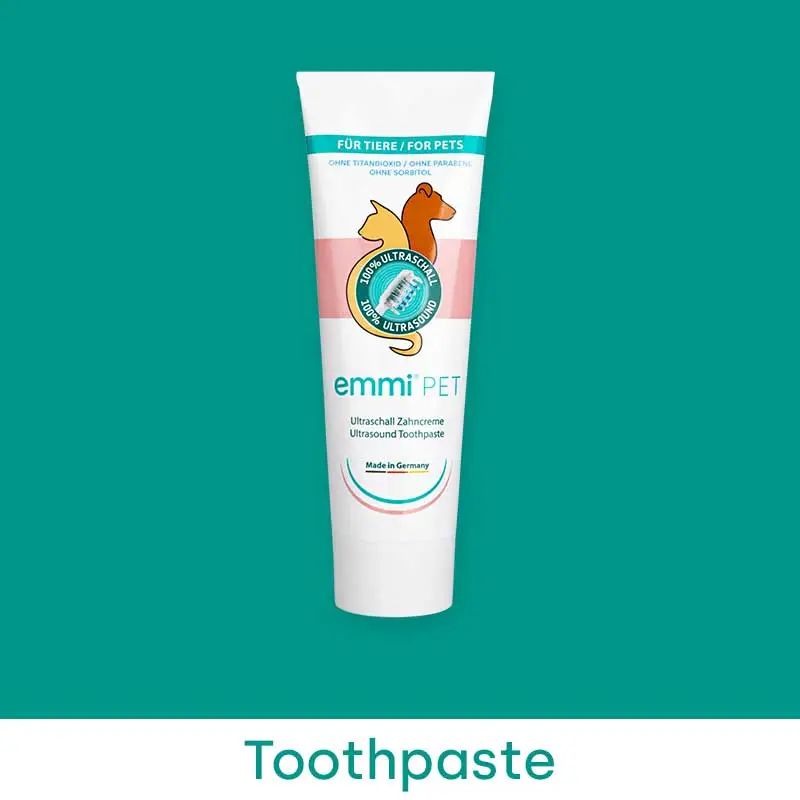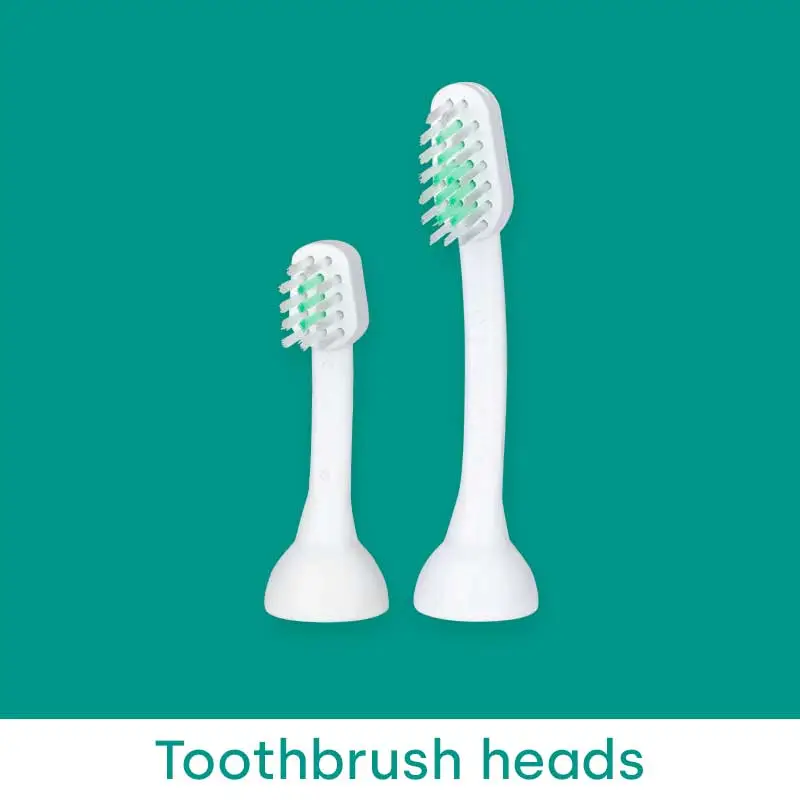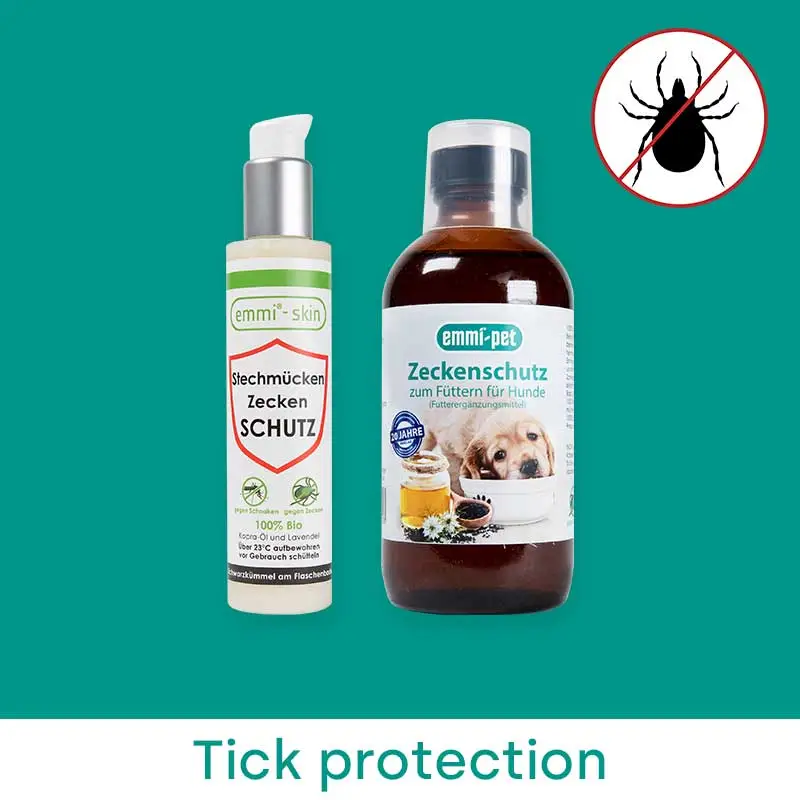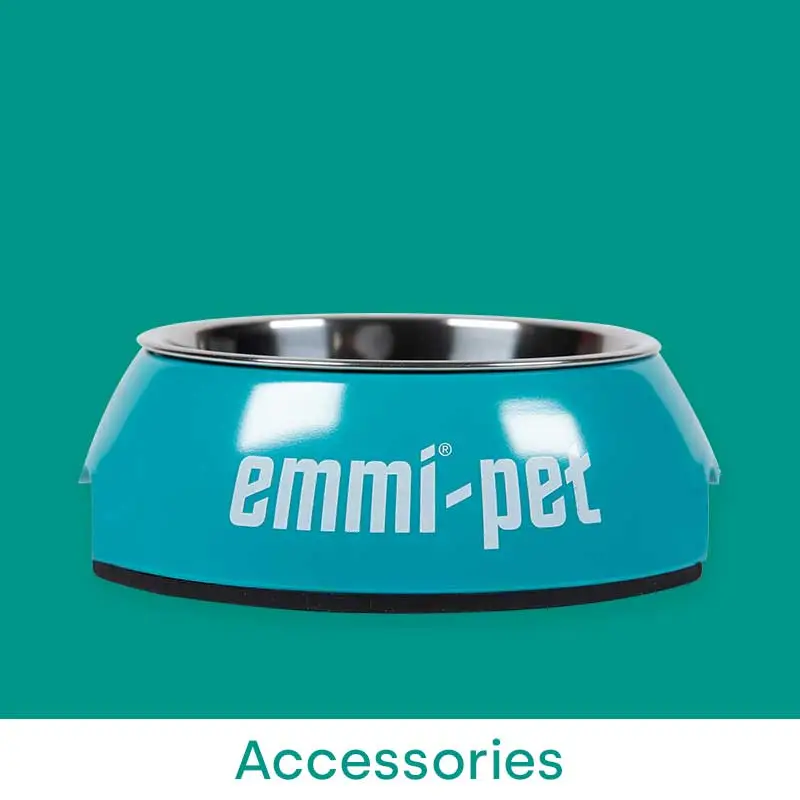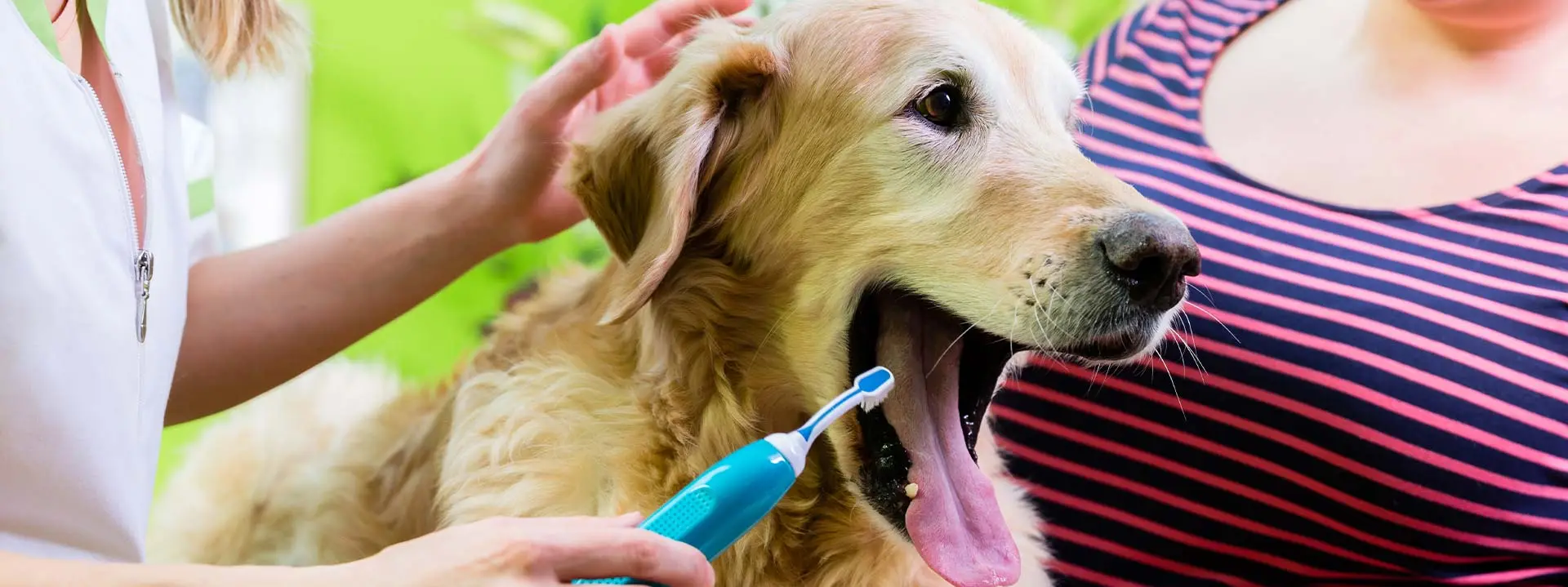
The Golden Retriever is justifiably regarded as an absolute favourite! Why? He combines friendliness, playfulness and a lovable nature that make him the perfect family dog. Originally from the Scottish Highlands, they have a character full of warmth and are remarkably adaptable.
But how do you look after your Golden Retriever properly? What do you need to know about their dental health? Let's take a closer look at these questions in this article. For example, did you know that regular brushing and moderate bathing are crucial to maintaining the natural water-repellent texture of his coat?
The importance of dental care cannot be overemphasised. It is essential to prevent dental problems and promote your dog's general health. Let's discover together some amazing tips and practical methods that will make both your life and that of your faithful companion much easier.
Golden Retriever: General information
What makes our Golden Retriever so special? These gentle giants, originally from the misty highlands of Scotland, not only impress with their friendly nature. With a shoulder height of 51 to 61 cm and a weight of 25 to 35 kg, they are not only impressive to look at, but also ideal companions for sporting adventures. Their even temperament and unwavering patience make them perfect family members. But how do you keep these charming dogs fit and healthy?
Regular dental care is essential to avoid unpleasant dental problems. A shiny, healthy coat requires regular brushing - a grooming routine that both strengthens the bond and promotes your dog's well-being. But be careful when bathing: Too frequent washing can damage the skin's natural oil layer and should therefore be done with caution.
Due to their deep bond with their humans, separation anxiety can quickly become an issue. Make sure your dog gets enough mental and physical stimulation to avoid boredom and stress.
By the way, if you want to buy a Golden Retriever puppy, be prepared for their incredible playfulness and energy. These little rascals need a lot of attention and loving training.
Health profile of the Golden Retriever: the most important aspects
When considering the health profile of a Golden Retriever, there are a few key points to focus on. These adorable four-legged friends are unfortunately prone to health challenges, including hip and elbow dysplasia, which can significantly limit their range of movement. Although joint activity is essential, gentle and thoughtful exercise is essential to protect their joints.
In terms of dental health, Golden Retrievers are prone to tartar build-up and gum disease, so consistent and regular dental care is essential. As far as coat care is concerned, their shiny coat requires frequent brushing. However, bathing should be kept to a necessary minimum in order to preserve the skin's natural protective layer.
Heart disease can also be an issue with Golden Retrievers. A balanced and healthy diet plays a decisive role here. It is advisable to speak to a vet about the optimum choice of food. Unfortunately, Golden Retrievers are also prone to mast cell tumours, so regular veterinary examinations can be life-saving.
If your Golden Retriever tires quickly, this could be a sign of health problems. Make sure you give him enough exercise without overtaxing him. Due to their keen intelligence, they also need mental challenges to keep them physically and mentally stimulated.
If you are looking for a Golden Retriever puppy, trust responsible and certified breeders to find a healthy and loyal companion. A healthy dog is a happy dog - and the foundation for many joyful years together.
5 dental care tips for Golden Retrievers
There are some simple but effective measures you can take to optimise your Golden Retriever's dental health:
-
Daily brushing: use a special dog toothbrush like our emmi-pet and the appropriate toothpaste to effectively reduce tartar build-up and gum disease. Daily cleaning is crucial for your dog's dental health.
-
Chews and toys: Chewing is not only fun for your dog, but also a natural way to keep their teeth clean. Invest in chews or toys that are specifically designed to reduce tartar and aid dental care.
-
Avoid sugary treats: Sugary snacks can be harmful to your dog's teeth and ultimately lead to tooth loss. Instead, offer small pieces of fruit or vegetables that are healthy for teeth.
-
Regular visits to the vet: Regular check-ups at the vet help to recognise dental problems early before they cause serious pain. This is an important part of preventative health care.
-
Benefits of dry food: Dry food can help to clean the teeth mechanically, similar to a toothbrush. Make sure that the food has been specially developed for your dog's dental health and fulfils the corresponding nutritional needs.
A healthy mouth is the key to a happy dog's life. These simple tips will not only keep your Golden Retriever healthy, but also happy.
Coat care and bathing instructions for Golden Retrievers
Proper grooming of your Golden Retriever is important to keep his gorgeous coat in top condition. Here are some stylish and useful tips:
-
Regular brushing: You should brush your dog's thick, water-repellent coat thoroughly at least twice a week. This helps to prevent matting and maintain the natural beauty of the coat.
-
Trim paws and ears: A little clipping around the ears, paws and belly area not only keeps your dog clean, but also prevents dirt and bacteria from building up. Regular trimming is a must.
-
Parasite protection: Always keep an eye out for fleas and ticks, as these parasites can seriously affect your dog's health. Regular checks and preventative treatments will help protect your dog from these unwelcome guests.
-
Consideration of social needs: Golden Retrievers are extremely social creatures that love company. Make sure your dog is not left alone for too long as this can lead to separation anxiety.
By brushing them properly, bathing them sparingly, trimming them occasionally and keeping an eye out for parasites, you can ensure that your faithful companion remains both happy and healthy. Grooming is not just a question of hygiene, but also of emotional care.
Frequently asked questions (FAQ)
In our collection of frequently asked questions about Golden Retriever care and dental health, we often come across the topic of brushing teeth. So how often? Every day! This will keep potential dental problems at bay. And which products are suitable? Everything that has been specially developed for dogs.
What to do if your dog hesitates to chew or has bad breath? Act immediately! These are clear signs of dental problems. Now you're probably wondering how to get your Golden Retriever used to brushing his teeth to prevent dental problems? Start early and make it a positive experience. With praise and treats, this will quickly become a daily routine.
It is interesting to note that a special diet supports dental health. Diets that promote the natural cleaning of teeth are worth their weight in gold, and if you are worried about mast cell tumours, talk to your vet regularly. After all, careful care is not just a question of how, but also of prevention.
Final tips for a happy Golden Retriever
Happy Golden Retrievers need far more than just food and daily walks to be truly happy and healthy. Let's start with physical and mental stimulation: Regular exercise and mental challenges are crucial to promoting both your dog's health and mental alertness. Games that challenge both the body and the mind will help keep your Golden Retriever fit and alert.
Dental health should not be neglected either. Daily tooth brushing and the use of special chews to prevent tartar are important, as many dogs suffer from dental problems. This small investment in daily care can have a big impact on your dog's health.
A balanced diet plays an equally crucial role. Not only does it support your dog's overall health, but it can also help reduce the risk of serious conditions such as mast cell tumours. It's important to always provide fresh water and avoid sugary snacks to keep your dog in optimal health.
Not forgetting the emotional bond, which is hugely important for Golden Retrievers. They are highly social animals that love the closeness of their family and can suffer from loneliness if left alone for too long. A strong, loving relationship and frequent interactions are crucial for your dog's emotional well-being.

